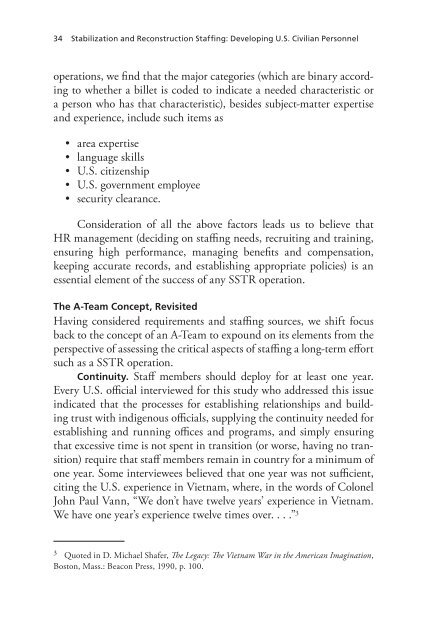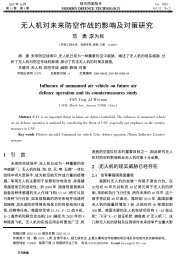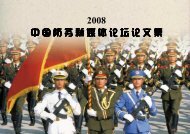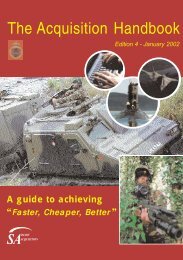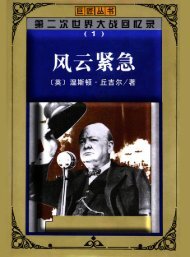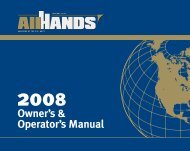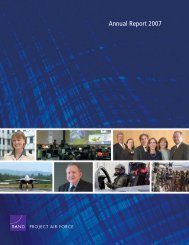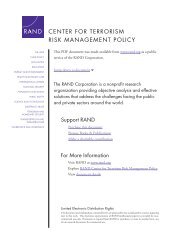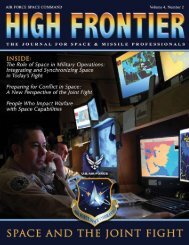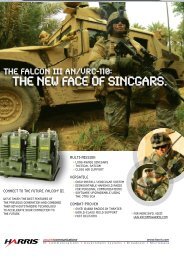Stabilization and Reconstruction Staffing - RAND Corporation
Stabilization and Reconstruction Staffing - RAND Corporation
Stabilization and Reconstruction Staffing - RAND Corporation
You also want an ePaper? Increase the reach of your titles
YUMPU automatically turns print PDFs into web optimized ePapers that Google loves.
34 <strong>Stabilization</strong> <strong>and</strong> <strong>Reconstruction</strong> <strong>Staffing</strong>: Developing U.S. Civilian Personneloperations, we find that the major categories (which are binary accordingto whether a billet is coded to indicate a needed characteristic ora person who has that characteristic), besides subject-matter expertise<strong>and</strong> experience, include such items as•••••area expertiselanguage skillsU.S. citizenshipU.S. government employeesecurity clearance.Consideration of all the above factors leads us to believe thatHR management (deciding on staffing needs, recruiting <strong>and</strong> training,ensuring high performance, managing benefits <strong>and</strong> compensation,keeping accurate records, <strong>and</strong> establishing appropriate policies) is anessential element of the success of any SSTR operation.The A-Team Concept, RevisitedHaving considered requirements <strong>and</strong> staffing sources, we shift focusback to the concept of an A-Team to expound on its elements from theperspective of assessing the critical aspects of staffing a long-term effortsuch as a SSTR operation.Continuity. Staff members should deploy for at least one year.Every U.S. official interviewed for this study who addressed this issueindicated that the processes for establishing relationships <strong>and</strong> buildingtrust with indigenous officials, supplying the continuity needed forestablishing <strong>and</strong> running offices <strong>and</strong> programs, <strong>and</strong> simply ensuringthat excessive time is not spent in transition (or worse, having no transition)require that staff members remain in country for a minimum ofone year. Some interviewees believed that one year was not sufficient,citing the U.S. experience in Vietnam, where, in the words of ColonelJohn Paul Vann, “We don’t have twelve years’ experience in Vietnam.We have one year’s experience twelve times over. . . .” 33 Quoted in D. Michael Shafer, The Legacy: The Vietnam War in the American Imagination,Boston, Mass.: Beacon Press, 1990, p. 100.


